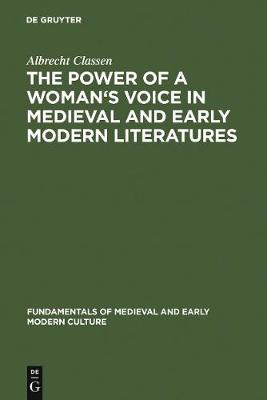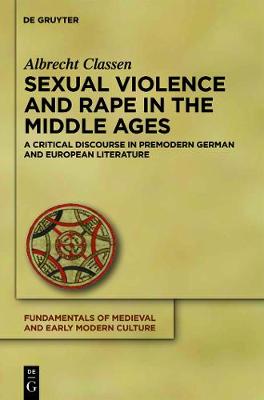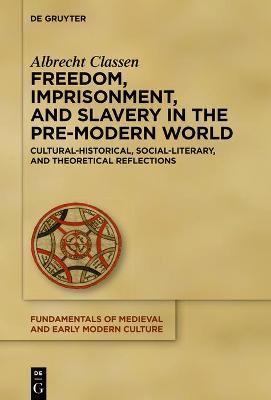Fundamentals of Medieval and Early Modern Culture
1 primary work • 3 total works
Book 1
The Power of a Woman's Voice in Medieval and Early Modern Literatures
by Albrecht Classen
Published 1 January 2007
The study takes the received view among scholars that women in the Middle Ages were faced with sustained misogyny and that their voices were seldom heard in public and subjects it to a critical analysis. The ten chapters deal with various aspects of the question, and the voices of a variety of authors - both female and male - are heard. The study opens with an enquiry into violence against women, including in texts by male writers (Hartmann von Aue, Gottfried von Strassburg, Wolfram von Eschenbach) which indeed describe instances of violence, but adopt an extremely critical stance towards them. It then proceeds to show how women were able to develop an independent identity in various genres and could present themselves as authorities in the public eye. Mystic texts by Hildegard of Bingen, Marie de France and Margery Kempe, the medieval conduct poem known as Die Winsbeckin, the Devout Books of Sisters composed in convents in South-West Germany, but also quasi-historical documents such as the memoirs of Helene Kottaner or Anna Weckerin's cookery book, demonstrate that far more women were in the public gaze than had hitherto been assumed and that they possessed the self-confidence to establish their positions with their intellectual and their literary achievements.
Medieval historians and literary scholars have not ignored the topic of sexual violence and rape, but the primary focus has regularly rested on English, French, or Italian documents. Here we have the first book-length study that investigates the treatment of sexual crimes in medieval and early modern German and Latin literature, making great efforts to shed light on often ignored scenes and episodes even in some of the 'classical' works such as Wolfram von Eschenbach's Parzival or the anonymous Nibelungenlied. As this monograph reveals, many times we face situations where we cannot easily determine whether rape has occurred or not. Consequently, we recognize an important discourse in these literary examples concerning the question of how to view and deal with sexual violence, which could also involve men as victims. This critical examination extends toward sixteenth-century jest narratives (Schwanke) where the issue of rape continued to occupy the authors' minds. Moreover, as numerous side glances to contemporary European literature indicate, the theme of sexual violence was of universal concern and critical importance during the entire premodern era.
Freedom, Imprisonment, and Slavery in the Pre-Modern World
by Albrecht Classen
Published 19 April 2021
Contrary to common assumptions, medieval and early modern writers and poets often addressed the high value of freedom, whether we think of such fable authors as Marie de France or Ulrich Bonerius. Similarly, medieval history knows of numerous struggles by various peoples to maintain their own freedom or political independence. Nevertheless, as this study illustrates, throughout the pre-modern period, the loss of freedom could happen quite easily, affecting high and low (including kings and princes) and there are many literary texts and historical documents that address the problems of imprisonment and even enslavement (Georgius of Hungary, Johann Schiltberger, Hans Ulrich Krafft, etc.). Simultaneously, philosophers and theologians discussed intensively the fundamental question regarding free will (e.g., Augustine) and political freedom (e.g., John of Salisbury). Moreover, quite a large number of major pre-modern poets spent a long time in prison where they composed some of their major works (Boethius, Marco Polo, Charles d'Orleans, Thomas Malory, etc.). This book brings to light a vast range of relevant sources that confirm the existence of this fundamental and impactful discourse on freedom, imprisonment, and enslavement.


